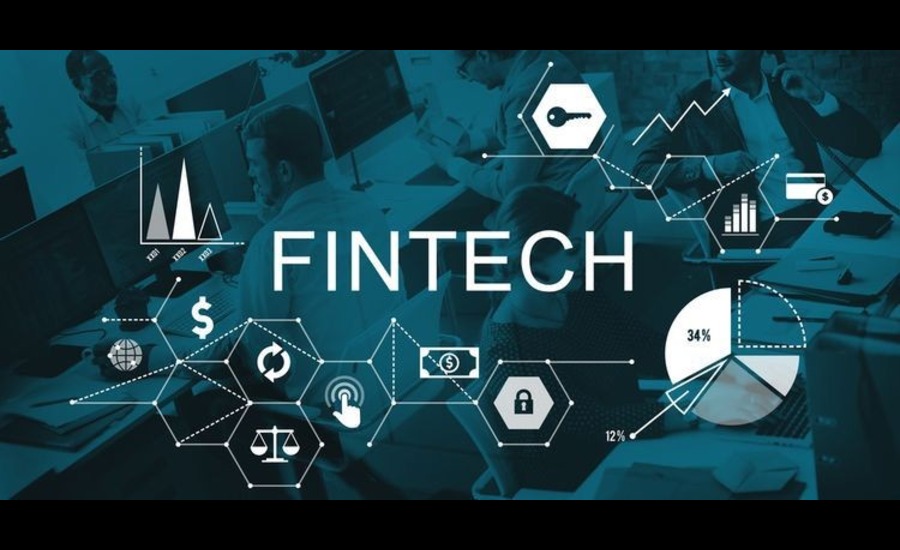Advance Your Career Opportunities with Fintech Technology and Management
A concise overview of fintech
Fintech encompasses the application of technology to financial services and operations. Its primary goal is to enhance or automate these services, thereby increasing efficiency and convenience. As a burgeoning sector, fintech offers numerous advantages to both consumers and businesses. This domain includes various applications such as mobile banking, insurance technology, cryptocurrencies like Bitcoin, and investment platforms.
Technological advancements are reshaping the financial landscape by offering solutions that are more affordable, user-friendly, and cost-effective compared to traditional methods. Mobile banking allows individuals to manage their finances via smartphones, providing real-time access to accounts and transactions. Insurance technology employs data analytics and automation to offer personalized coverage and expedite claim processing.
In the contemporary, rapidly evolving financial environment, the integration of technology into financial services has catalyzed the growth of fintech, altering how money is managed and transactions are conducted. As fintech continues to evolve, the need for specialized Masters in Fintech expertise is increasing. Enrolling in a career-vetted program can significantly bolster one’s comprehension and preparedness to navigate this dynamic industry.
Fintech’s Impact on Finance:
- Banking: Major banks now offer mobile features, and digital-first neo-banks provide online-only services for checking, savings, payments, and loans. Notable neo-banks are Chime, Current, Aspiration, and Varo.
- Payments: Mobile payment platforms facilitate global transactions. Key players include Venmo, Cash App, Zelle, PayPal, Stripe, and Square.
- E-Commerce: ‘Buy now, pay later’ options from Klarna and Affirm allow smaller, interest-free payments, aiding targeted advertising.
- Stock Trading: Platforms like Robinhood offer commission-free trading; AI tools assist with stock selection based on user preferences.
- Wealth Management: Robo-advisors from Wealthfront, Stash, and Acorns provide automated investment recommendations and portfolio management.
- Fintech Lending: Enhanced risk assessment and expedited approvals improve credit accessibility. Mobile applications enable global loan requests from prominent lenders such as SoFi, Funding Circle, and Prosper Marketplace.
- Insurtech: Insurance innovation through automation and expanded coverage, including mobile car insurance and health wearables—key players: Lemonade, Kin.
- Regtech: Tools monitor transactions to detect fraud and assess risk. Leading companies include ComplyAdvantage, Forter, and Chainalysis.
- Cryptocurrency: Platforms for trading digital currencies, crypto wallets, and blockchain technology enhance payment processing and digital identity management. Examples: Coinbase, Blockfi, and Circle.
Top fintech advantages
The evolution of fintech continues to transform the manner in which individuals and organizations engage in financial activities, highlighting its crucial role in contemporary finance. The sector’s persistent advancement is set to streamline financial services further, improving both accessibility and efficiency for users on a global scale.
Fintech companies address a crucial need by providing better financial services. They are designed to meet the demands of an unpredictable economic environment. Banks often impose strict limitations on access to financial services, and fintechs rise to meet this demand with innovative solutions.
The core of fintech lies in its use of digital technology and online platforms. This modern approach resolves many challenges in traditional finance while enhancing user experiences.
Fintechs and traditional financial institutions share similarities in essential functions, contributing to their growing appeal. Key fintech categories include:
- Payment Systems: Facilitating transactions for both physical and online businesses.
- Process Efficiency: Streamlining financial services by removing intermediaries.
- Cost Efficiency: Providing competitive rates and saving costs by eliminating physical infrastructure.
- Increased Transparency: Utilizing technologies like blockchain for greater operational visibility.
- Broadened Accessibility: Offering financial products to a broader audience, overcoming traditional barriers.
- Advanced Infrastructure: Supporting financial services with robust systems for risk assessment, identity verification, and API integration.
- Administrative Support: Delivering tailored accounting and management solutions.
- Financial Advisory: Offering education and management services for diverse financial needs.
- Trading Platforms: Providing virtual spaces for stock market investments.
- Insurance Innovation: Implementing new technologies in the insurance sector.
- Digital Banking: Catering to varied customer needs with entirely online banking services.
Real-world fintech examples
Prominent fintech examples include:
- PayPal: A leading online payment solution with global reach.
- Kickstarter: A prominent crowdfunding platform that enables collaborative funding for entrepreneurs.
These examples showcase fintech’s wide-ranging capabilities for both individuals and businesses. With this understanding, you will likely encounter more fintech solutions in your daily life.
How is fintech rapidly transforming the financial domain?
The rapid implementation, automation, and optimization of financial services provided greater convenience to the customer. Another bank is a prime example. Customers are not charged a fee for ordering a credit card or opening an online bank account, something traditional institutions in this price range do not offer. Other fintech products include digital wallets, through which you can make payments, and peer-to-peer payments, which also allow individual people to send refunds to each other via the Internet.
The low cost and online accessibility of fintech finance provide viable investment options for a previously underserved segment of the population. For example, nearly all ethnic groups use fintech, with 92% of Hispanic users and 90% of African Americans using these services.
Companies have also added their twist and entered the fintech bandwagon. Insurance companies are using AI-powered fintech products to assess risks and offer fair pricing. Also, through chatbots and robo-advisors, consumers can interact with financial institutions at any time of day or night, and companies can connect with investors through credit channels and other forms of capital. The number of unicorns ballooned from 39 to 272 in the five years between 2019 and 2023. In terms of market capitalization, finance companies have doubled their prices
Conclusion
By 2030, the fintech market is projected to exceed $882 billion. Despite setbacks such as the FTX crypto exchange scandal and the Silicon Valley stock market crash, the fintech sector remains strong. Although funding is slow, it is expected to recover. By 2023, subscriber growth rates across industries will increase by more than 50%. The integration of fintech with artificial intelligence shows promising growth, expanding the future potential of the fintech landscape.
Investing in specific Masters in Fintech programs can dramatically enhance career growth in the financial technology sector. By developing specialized skills and knowledge, employees can meaningfully contribute to innovative solutions and maintain a competitive edge in the marketplace. As fintech continues to evolve with developments such as artificial intelligence, continuing education through prestigious courses is critical to securing a successful career in this dynamic field.





